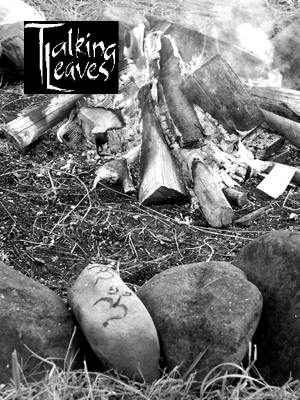During the last ice age, glacial lobes crept south from the Arctic and leveled much of Minnesota, Wisconsin, Illinois, and Iowa. However, they spared an area of about 15,000 square miles, which includes parts of each of those states. This is the Driftless Region. It is characterized by rolling hills and river valleys and sports some very special geological features. About 19,000 years ago, when the ice age temperatures hit their lowest, spring and summer water seeped into small cracks in the limestone or dolomite bedrock, causing it to crack when the water froze and expanded upon winter's return. When the glaciers receded thousands of years later, great flows of glacial meltwater exacerbated these fissures simply by running through them. Limestone is easily erodable by the very slight acid in water. This process created various caverns and crevices and sinkholes that are widespread in the Driftless Region. It is upon this karst topography, as it is called, that algific slopes depend.
2005 Fall
Geology and Some Kind of Reverence Along the Upper Iowa River
2005 Fall | Hannah McCargar
about this issue: War, Peace, Ecology, Permaculture...
2005 Fall | Chris Roth
And there's factories on the shore
And the world is ill with greed and will
And enterprise of war
But I will lay my burdens
In the cradle of your grace
And the shining beaches of your love
And the sea of your embrace
This is my home
This is my only home
This is the only sacred ground that I have ever known
And should I stray in the dark night alone
Rock me, goddess, in the gentle arms of Eden
--Dave Carter, "Gentle Arms of Eden"
Some readers may notice that this issue's theme has changed from what was originally announced. We solicited submissions about "War, Peace, and Ecology," but we ended up with something a bit different. This issue does include a few articles that discuss war, but it focuses far more on peace--including deep ecology, Permaculture, and other peaceful ways of approaching life. I am happy about this change. The world really does have enough war without our contributing to it and reinforcing it in the pages of Talking Leaves. Any informed person knows the story already, is already saddened, outraged, and probably as educated as much as really necessary in what is going wrong in the world. In this issue, we suggest ways of approaching life-as individuals, as communities, as societies--that provide hopeful alternatives, fresh perspectives, larger contexts in which cooperation, rather than warfare, is the only solution that makes sense for any of us.
Peace and Permaculture: An Interview with Dave Jacke
2005 Fall | Chris Roth
Dave Jacke has been a student of ecology and design since the 1970s, and has run his own ecological design firm--Dynamics Ecological Design--since 1984. Dave teaches ecological design and permaculture, and has consulted on, designed, built, and planted landscapes, homes, farms, and communities in many parts of the United States, especially the Northeast, as well as overseas. A cofounder of Land Trust at Gap Mountain in Jaffrey, NH, he homesteaded there for a number of years.
He is the primary author of the two-volume magnum opus Edible Forest Gardens (Chelsea Green, 2005), about creating home-scale food gardens which mimic forest ecosystem structure and function. He will be teaching a Bioneers pre-session workshop at Lost Valley, Tuesday October 11 through Thursday October 13, entitled "Edible Forest Gardens: Integrating Ecology, Design and Agriculture." For more information and registration, email [email protected] or call 541-937-3351 ext. 112. Also check out Dave's website at www.edibleforestgardens.com; you can reach him at [email protected].
Talking Leaves Sheds Its Skin Once Again
2005 Fall
Talking Leaves was born in 1989, when Carolyn Moran and friends decided to start a Eugene-based monthly tabloid focusing on deep ecology and spiritual activism. Five years later, it shed its skin, becoming a quarterly (or, more accurately, "try-quarterly") magazine printed on tree-free paper. Three years later, having become immersed in care of her newly-hatched tree-free paper business, Carolyn turned Talking Leaves over to Lost Valley Educational Center, where it became a three-or-four-times a year "journal of our evolving ecological culture" in magazine format.
peace in my life
2005 Fall | kaseja Wilder
While i want to honor my feelings, i have a goal to be more peaceful in my life. I think this has the potential to make my environment calmer and facilitate connections with my family and community. To this end, i have seriously put some attention to my breath; remembering to breathe deeply in times of stress as well as just breathing in general. I literally practice breathing. I've asked my loved ones to remind me to breathe (and i remind them). Multiple times a day i spend time focusing on breathing throughout my whole body, filling my lungs up all the way. It feels good; it's a self reinforcing practice.
